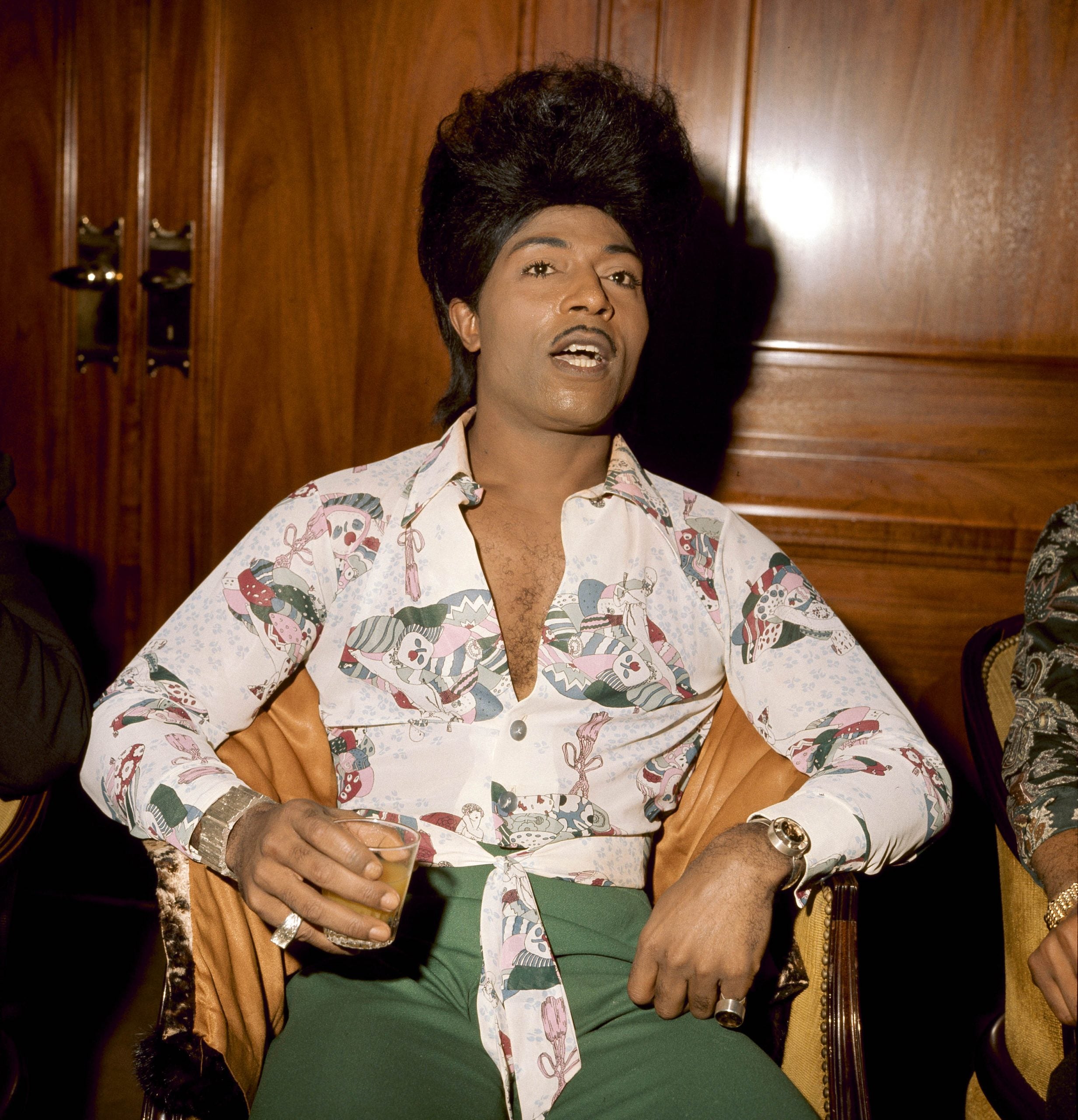
As part of the 2023 March On Washington Film Festival, a trailblazing documentary titled Little Richard: I Am Everything directed by Emmy Award-winning director Lisa Cortes shone a light on the legendary musician’s inner struggles, his journey to reconcile his Christianity with his identity as a gay man, and his pivotal role in breaking down barriers within the world of rock ‘n’ roll.
“When Richard passed away in the spring 2020, there were numerous tributes from all the Lions of rock and roll from you know, Springsteen to Dave Grohl, and Bob Dylan talking about how important Little Richard was to them,” Cortes tells ESSENCE. “Little Richard was more than a performer who sometimes had come across in his later years as being campy, but he really did have the right to claim a role as an architect of rock and roll. And whenever there’s a hidden history that has not been told, that’s my call to action as a filmmaker to find a way to document through my work, the richness of their contributions.”
The Little Richard documentary is more than just a film; it’s an ode to a multifaceted icon who dared to challenge norms and champion the spirit of individuality. Born Richard Wayne Penniman, Little Richard embodied numerous titles throughout his career—the King of Rock and Roll, The Bronze Liberace, the emancipator of soul, and even the most attractive among twelve siblings—it’s in part what drove Cortes to creating the documentary.

It traces Little Richard’s life from a kid in Macon, Georgia, to a global superstar with a conflicting duality. It delves into growing up with deformities, his makeup, his decision to retire from music for religious studies, his memorable collaborations with pre-fame Beatles, Mick Jagger, James Brown, and Jimi Hendrix, emphasizing the significance of embracing your uniqueness, letting your true self shine, and staying true to your individuality.
“In looking at Richard’s story, one of the things that immediately jumps out is this roller coaster that he is on, a roller coaster between what he perceives as being, the sacred and the profane, and his struggle internally to embrace that in his life,” Cortes explains. “His love of God, his love of the exuberance of rock and roll I think we all can say that actually, in his music, he’s able to unite the two. Sometimes he sounds like a minister and the music is wailing, and all of this is happening at one time. I think that’s part of one of the great contradictions. Really, Richard, in his performance in music, he could bring together what he could not what he had great difficulties reconciling within himself,” she adds.
Beyond Richard’s internal struggles, the film emphasizes a universal truth about American music, and how Black artists are paramount to every genre, even when we may not get the credit—the film highlights how Richard’s “Tutti Frutti” was both monopolized and watered down by white artists like Elvis Presley and Pat Boone, who sold more records of the song than it’s original creator.
At its core, Little Richard: I Am Everything is a melodic journey through the depths of identity. In an era where conformity was the norm, Richard’s inner struggles were a symphony of discordant notes. The documentary invites viewers to join him on a soul-stirring quest to reconcile his religious beliefs with the unapologetic revelation of his identity as a gay man. It’s a journey that resonates with anyone who’s ever felt the dissonance between their true self and societal expectations. Following being kicked out of his childhood home, he would join the infamous chitlin’ circuit, where he would perform alongside acts like Ma Rainey and Sugar Foot Sam From Alabam. These clubs became safe haven for queer and gender non-conforming people.
“One of the things about Little Richard that we show in the film is that he’s a pioneer. He’s a civil rights pioneer in his own way. Not only is he presenting visually and and bringing to the world unabashedly is queer self in 1955,” Cortes continues. “He’s bringing people together.”
Further, as the film unfolds, it paints a vivid portrait of the man who dared to break barriers and redefine music. Little Richard became a sonic pioneer who shattered the boundaries of genre and convention. His music, a fusion of gospel and secular sounds, became the anthem of rebellion, inspiring generations to embrace their authenticity.
“The civil rights movement has many moments. But culture, and cultural icons like Richard, were also a part of changing the norm in this country. Imagine in 1955 seeing this persona come into your world and appear in films with all the glitter and makeup that came with Richard, that was liberating. I’ve spoken to young men and they’ve said, ‘wow, seeing him gave me permission to explore my own queerness,’ and I think that is so interesting to hear from someone who in that time, you know, which is still very stilted.”
Beyond the music, Little Richard: I Am Everything stands as a beacon in the 2023 March On Washington Film Festival’s mission. This year, the festival’s theme spotlighted the pivotal role of people of faith in the ongoing civil rights movement. Little Richard, with his background in theological school and his influential presence in both the gospel and secular music worlds, emerges as a powerful symbol of this fusion of faith and activism.







“We have to be very clear to recognize that today, there are Black churches that openly embrace their queer members. But throughout most of the 20th century, there was a combined pressures of segregation and societal homophobia that created enormous tensions, not just for Richard, but for entire generations of Black queer people, and what we know is that they played many pivotal roles in their churches,” Cortes says. “The movie traces away that the struggle complicated Richard’s life and his sense of self, and one of our incredible scholars says, ‘you can, mate perhaps, Richard, the place he could have landed at, was that he was at his best when he embraced his fullness.'”
The film becomes a testament to the relentless pursuit of justice and equality, not just for the LGBTQAI+ community, but for people of color and all marginalized communities. It showcases how faith can be a catalyst for change, a force that propels us forward in the quest for rights and freedoms.
You can watch ‘Little Richard: I Am Everything’ online.







